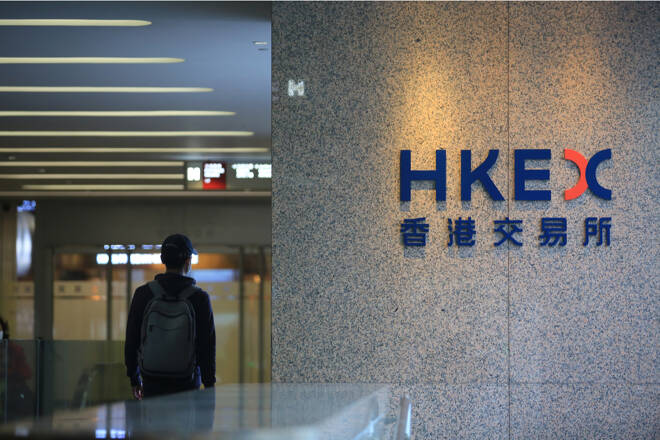Advertisement
Advertisement
Hang Seng Index, ASX 200, Nikkei 225: Fed Speeches and Corporate Earnings
By:
Key Points:
- The Hang Seng Index ended a ten-day winning streak, while a vigilant but less hawkish RBA drove buyer demand for ASX 200-listed stocks.
- On Wednesday (May 8), the Asian markets will likely take their cues from overnight Fed speeches and the US equity market session.
- Figures for Japanese stock investment by foreigners and corporate earnings also need consideration.
US Equity Markets: FOMC Member Commentary and Economic Sentiment
On Tuesday (May 7), the RCM/TIPP Economic Optimism Index drew investor interest following the US Jobs Report and ISM Services PMI survey.
The Index decreased from 43.2 to 41.8 in May, signaling a more pessimistic outlook for the US economy. However, FOMC member speeches also captured investor attention amid fluctuating expectations for a September Fed rate cut.
FOMC member Neel Kashkari released an essay on monetary policy and inflation with a hawkish spin.
On Tuesday (May 7), the Nasdaq Composite Index declined by 0.10%. The Dow and the S&P 500 ended the session up 0.08% and 0.13%, respectively.
Fed speakers and the US equity market movements will likely set the tone for the Wednesday (May 8) Asian session.
Asian Economic Calendar: Stock Investments by Foreigners and Corporate Earnings
On Wednesday (May 8), foreign investments into Japanese stocks will draw investor interest. Upward trends in investment by foreigners could drive buyer demand for Nikkei-listed stocks.
In the week ending April 20, foreign investments in Japanese stocks declined by ¥492.4 billion.
Beyond the numbers, investors should also consider central bank commentary, which influences market risk sentiment.
Furthermore, corporate earnings also warrant investor attention. Mitsubishi Motor Corp. (7211), Yamaha Corp. (7951), Manulife Financial (HK: 0945), and Wesfarmers (ASX: WES) are among the big names to release earnings results.
Commodities: Crude Oil, Gold, and Iron Ore
On Tuesday (May 7), gold spot (XAU/USD) fell by 0.42% to close the session at $2,314.10. WTI crude oil declined by 0.13%, ending the day at $78.38.
On the Singapore Futures Exchange, iron ore prices were down 0.03% on Wednesday (May 8). Iron ore spot fell by 1.16% on Tuesday (May 7).
The USD/JPY and the Nikkei
The USD/JPY increased by 0.54% on Tuesday (May 7), closing the session at 154.691. USD/JPY trends may influence buyer appetite for Nikkei 225-listed export stocks. A weaker Yen could support export stocks.
The Futures Markets
On Wednesday (May 7), the ASX 200 was up 14 points, while the Nikkei 225 was down by 180 points.
ASX 200
The ASX 200 rallied 1.44% on Tuesday (May 7). Gains were broad-based for the second successive session, with the S&P/ASX All Tech Index advancing by 1.62%. A less hawkish-than-expected RBA drove buyer demand for ASX 200-listed stocks.
Commonwealth Bank of Australia (CBA) and Westpac Banking Corp. (WBC) rallied 2.07% and 2.84%, respectively. ANZ Group Holdings Ltd. (ANZ) gained 0.07%, with National Australia Bank Ltd. (NAB) rising by 0.95%. ANZ lagged the broader market after a profit miss.
BHP Group Ltd (BHP) and Rio Tinto Group Ltd. (RIO) ended the session up 1.57% and 1.57%, respectively. Fortescue Metals Group Ltd. (FMG) advanced by 1.75%.
Gold-related and oil stocks also had positive sessions.
Gold-related stocks Northern Star Resources Ltd. (NST) and Evolution Mining Ltd (EVN) rose by 1.17% and 1.61%, respectively.
Woodside Energy Group Ltd (WDS) and Santos Ltd (STO) increased by 1.87% and 0.94%, respectively.
Hang Seng Index
The Hang Seng Index declined by 0.53% on Tuesday (May 7). Tech stocks dragged the HSI into the red, with the Hang Seng Tech Index (HSTECH) sliding by 2.13%. However, real estate stocks limited the downside. The Hang Seng Mainland Properties Index (HSMPI) gained 0.75%.
Alibaba (9988) and Tencent (0700) fell by 1.82% and 1.19%, respectively.
However, bank stocks had a positive session. HSBC (0005) advanced by 0.72%. China Construction Bank (0939) and Industrial Commercial Bank (1398) saw gains of 0.38% and 0.47%, respectively.
The Nikkei 225
(Graph for reference purposes only)
The Nikkei 225 reopened after a two-day holiday, rallying 1.57% on Tuesday (May 7).
Bank stocks had a positive start to the week. Sumitomo Mitsui Financial Group Inc. (8316) and Mitsubishi UFJ Financial Group Inc. (8306) rose by 0.42% and 0.32%, respectively.
However, it was a mixed session for the main components of the Nikkei 225.
Tokyo Electron Ltd. (8035) and Softbank Group Corp. (9948) surged 5.23% and 3.66%, respectively. Fast Retailing Co. Ltd. (9983) ended the session up 3.16%.
However, Sony Group Corporation (6758) slid by 2.91% over investor concerns about a bid to acquire Paramount Global. KDDI Corp. (9433) declined by 1.00%.
For upcoming economic events, refer to our economic calendar.
About the Author
Bob Masonauthor
With over 28 years of experience in the financial industry, Bob has worked with various global rating agencies and multinational banks. Currently he is covering currencies, commodities, alternative asset classes and global equities, focusing mostly on European and Asian markets.
Advertisement
